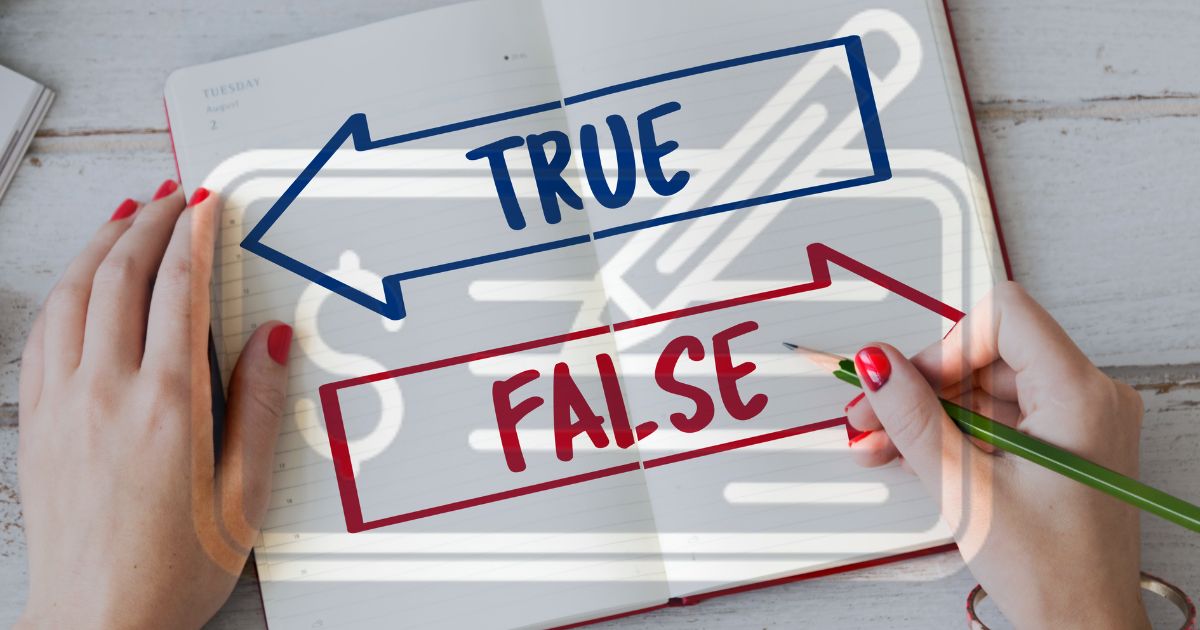
| February 8th, 2024 |
Common Myths and Realities about Echecks.
In the rapidly evolving landscape of payment processing, electronic checks, or echecks, have emerged as a convenient and secure alternative to traditional paper checks. However, despite their growing popularity and widespread adoption, echecks are often shrouded in myths and misconceptions. In this comprehensive guide, we debunk common myths surrounding e-checks and uncover the realities behind this innovative payment method.
Myth #1: E-checks are outdated and insecure.
Reality: Contrary to popular belief, e-checks leverage advanced encryption and security protocols, making them as secure as other digital payment methods. With features like authentication, encryption, and tokenization, e-checks offer robust protection against fraud and unauthorized access.
Myth #2: E-checks take longer to process than credit/debit card transactions.
Reality: While paper checks may involve longer processing times, e-checks streamline the payment process by enabling electronic authorization and settlement. In many cases, e-check payments can be processed faster than traditional paper checks, leading to quicker fund availability for merchants.
Myth #3: E-checks are only suitable for large businesses or enterprises.
Reality: E-checks are versatile and scalable, catering to businesses of all sizes across various industries. Whether you run a small e-commerce store or a multinational corporation, e-checks offer a cost-effective and efficient payment solution that can adapt to your specific needs and volume of transactions.
Myth #4: Customers are hesitant to use e-checks due to unfamiliarity or perceived risks.
Reality: As digital payment methods become increasingly prevalent, consumers are becoming more comfortable with e-checks as a convenient and secure option. With proper education and transparent communication, businesses can effectively address any concerns and encourage adoption among their customer base.
Myth #5: E-checks are prone to bounce or chargeback issues.
Reality: Like any payment method, e-checks carry a risk of insufficient funds or disputed transactions. However, with proper verification and risk management measures in place, businesses can minimize the occurrence of bounced checks and chargebacks, ensuring smoother financial operations.
Myth #6: Setting up e-check processing is complex and time-consuming.
Reality: Many payment service providers offer user-friendly platforms and seamless integration options for e-check processing. With intuitive interfaces and comprehensive support resources, businesses can quickly set up and start accepting e-check payments with minimal hassle.
Myth #7: E-checks lack regulatory compliance and legal validity.
Reality: E-check processing is subject to stringent regulatory standards and industry guidelines, ensuring compliance with legal requirements such as the Electronic Fund Transfer Act (EFTA) and the Uniform Commercial Code (UCC). By partnering with reputable payment providers, businesses can ensure adherence to regulatory frameworks and maintain legal validity in their transactions.
Myth #8: E-checks offer limited benefits compared to other payment methods.
Reality: E-checks offer a range of advantages for businesses, including lower transaction fees, reduced processing costs, and improved cash flow management. With features like recurring payments, automated invoicing, and seamless integration with accounting systems, e-checks can enhance efficiency and streamline financial operations.
Myth #9: E-checks are vulnerable to data breaches and cyberattacks.
Reality: While cybersecurity threats are a concern for any digital payment method, e-checks employ sophisticated encryption techniques and compliance measures to protect sensitive data. By adhering to industry standards such as Payment Card Industry Data Security Standard (PCI DSS) and implementing robust security protocols, businesses can mitigate the risk of data breaches and safeguard customer information effectively.
Myth #10: E-checks are not widely accepted by merchants and vendors.
Reality: E-checks have gained widespread acceptance among merchants and vendors across various industries, including retail, e-commerce, utilities, healthcare, and more. Many businesses recognize the advantages of e-checks in terms of cost savings, efficiency, and customer satisfaction, leading to increased adoption and integration of e-check payment options into their operations.
Myth #11: E-check processing is cumbersome and time-consuming for customers.
Reality: With user-friendly interfaces and intuitive payment platforms, e-check processing is quick and convenient for customers. Online portals and mobile applications enable users to initiate e-check payments with just a few clicks or taps, eliminating the need for manual paperwork or visits to physical locations. Additionally, automated verification and authorization processes help expedite transaction processing, enhancing the overall user experience.
Myth #12: E-checks lack regulatory oversight and compliance.
Reality: E-check transactions are subject to regulatory oversight and compliance requirements established by government agencies and industry associations. Payment service providers and financial institutions must adhere to regulatory frameworks such as the Electronic Funds Transfer Act (EFTA), Regulation E, and the Check 21 Act to ensure legal validity and consumer protection in e-check processing. Compliance with these regulations helps maintain trust and confidence in e-check transactions among businesses and consumers alike.
Myth #13: E-checks are only suitable for one-time payments and cannot support recurring billing.
Reality: E-checks offer robust functionality for recurring billing and subscription-based services, enabling businesses to automate recurring payments and subscription renewals seamlessly. By setting up automated billing schedules and payment reminders, businesses can streamline billing processes, reduce administrative overhead, and improve cash flow predictability while offering customers greater convenience and flexibility in managing their payments.
Myth #14: E-checks lack transparency and accountability in transaction processing.
Reality: E-check processing platforms provide businesses with real-time visibility and tracking capabilities, allowing them to monitor transaction status, reconcile accounts, and generate detailed reports for auditing and analysis purposes. By leveraging transaction monitoring tools and reporting features, businesses can maintain transparency, accountability, and regulatory compliance throughout the e-check payment lifecycle.
Conclusion —
e-checks represent a modern and reliable payment solution that addresses the evolving needs of businesses and consumers in today’s digital economy. By dispelling common myths and understanding the realities behind e-checks, businesses can harness the full potential of this innovative payment method to optimize their financial processes and drive growth.
As e-checks continue to gain traction in the payment processing landscape, businesses must stay informed and proactive in embracing this technology to stay competitive and meet the evolving demands of their customers. With the right knowledge and strategic approach, e-checks can become a valuable asset in achieving operational efficiency, cost savings, and customer satisfaction in the digital age.
